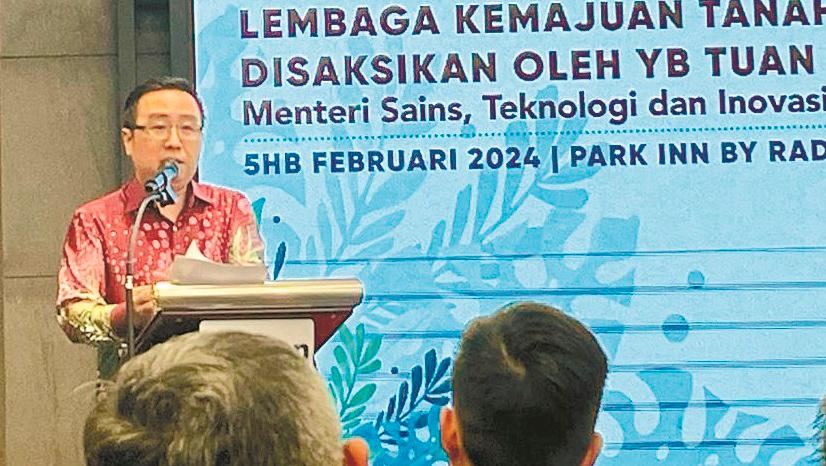PUTRAJAYA: Malaysia’s Artificial Intelligence (AI) Code of Ethics is at more than 90% complete and will be launched at the end of this month, according to Science, Technology and Innovation Minister Chang Lih Kang.
“The AI Code of Ethics is expected to be launched at the end of February, it has reached the final stage. Once we launch it, we will provide more details, and we will conduct a press conference. Currently, it is at over 90% completion,” he stated during a press conference at the Felda and Abeco’s memorandum of understanding document exchange ceremony on research involving black soldier fly (BSF) larvae to pioneer alternative sources for feed solutions yesterday.
He previously stated that a special committee, established under the Ministry of Science, Technology and Innovation, was actively working on creating a comprehensive framework for AI technology. The framework will detail the guidelines and regulations that all sectors need to adhere to.
At the event, the Federal Land Development Authority (Felda) and Abeco Nature Science Sdn Bhd announced their collaboration on a research to enhance the production of antimicrobial peptides (AMP) and proteins in BSF larvae, enabling the creation of pioneering feed solutions with augmented antimicrobial properties and nutritional levels contributing to sustainable livestock and aquaculture sectors.
The collaboration involving Felda and Abeco together with researchers from Infrastructure University Kuala Lumpur will provide an alternative approach to augmenting feed solutions, potentially mitigating the rise of antibiotic-resistant pathogens and supporting the ecological and economic sustainability of animal production systems.
The research that uses selective breeding and diet-induced AMP expression methods can also be an instrument in helping the government and industry reduce the dependency on animal feed imports estimated at more than four million tonnes each year.
Chang said the collaboration aligns with the National Biotechnology Policy 2.0, which was launched on Sept 12, 2022. The policy focuses on three main thrusts being; agricultural biotechnology and food security; healthcare and well-being, and biotechnology in industrialisation and circular economy.
This project is an initiative to enhance Malaysia’s national food security by reducing our dependence on imported animal feed. In 2020, Malaysia imported RM6 billion worth of raw materials for livestock feed, primarily corn and soy, from South American countries.
The cost of livestock feed constitutes 70%-90% of total expenses in livestock farming and nearly 60% in aquaculture farming, significantly affecting the prices of various food products. By lowering feed costs, enhancing livestock health and productivity, and reducing imports, this initiative directly improves economic outcomes for local farmers and strengthens the wider agro-industry, promoting a more self-sufficient, resilient, and sustainable agricultural economy.









